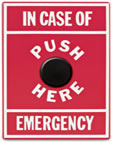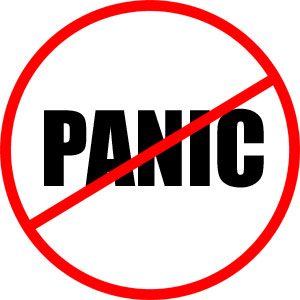revhtree
Owner Administrator
View Badges
Staff member
Super Moderator
Reef Squad
Partner Member 2024
Excellence Award
RGB
Photo of the Month
Article Contributor
R2R TV Featured
Hospitality Award
Article Administrator
Black Friday Sponsor
Partner Sponsor 2023
Industry Professional
My Aquarium Showcase
- Joined
- May 8, 2006
- Messages
- 47,766
- Reaction score
- 87,236
What to do in a Worst Case Scenario? Be Prepared!

We’ve all been there…. If you haven’t yet, you probably will sooner or later (knock on wood). You come home/wake up/just notice that something is drastically wrong with your tank. The problem could be anything…. And it has you in a state of panic.
Start by doing one thing…. STOP!
(Remember to breathe)
If the plan requires immediate action, you STILL MUST take the time to create a full step by step procedure of what you’re about to do to remedy the situation. Write it down if you have to. Now read it. Does it make sense? Is it considered safe? If It’s a water parameter that way above or below normal, are you sure your test kit is accurate? Can you get a second reading? Is the livestock displaying any ill effects? If not, it may be better to gradually bring whichever parameter back to normal levels instead of trying to fix the problem immediately.
If you’re unsure of yourself, or the steps you need to take to remedy the situation, DO NOT PROCEED until you’re confident about the steps you need to take to fix the problem. Posting online is a great way to get answers and quite often you will get a response from someone within minutes. Another resource could be a LFS (local fish store), that specializes in saltwater and preferably one that you trust, otherwise you may run the risk that any “advice†may just be something they said to make you buy product.
The result of not thinking things out and acting too quickly, or in a panicked state (drastically changing salinity levels over a very short period of time) will often have a more detrimental effect than if you had made the change slowly.

If you truly want to be able to give your reef the best possible chance at staying healthy over a long period of time, the key is not to wait for something bad to happen. Being prepared greatly increases your chance of overcoming a ‘worst case scenario’. Obviously each situation will have to be judged on a case by case basis… and will require different needs, but with some reason we can create solutions for a number of different problems before they occur.
Having some ‘freshly’ mixed saltwater on hand at all times can be a lifesaver, literally, for some livestock in your tank. At the very minimum, a 5 L bucket (or much larger depending upon the size of your tank) with a powerhead or airstone would suffice, but if you’re running a hospital or quarantine tank, these can also perform a similar function, in a worst case scenario….so long as it’s not connected to the display tank, to keep the water bodies separate, and what happens to one can’t affect the other.
Being able to cope with a power outage is another important consideration every hobbyist should make, and there are numerous options available to solve this problem (battery backup, ups, generator, ect).
An aquarium controller is another great way to add redundancy to your saltwater tank system, and prevent a possible worst case scenario from happening before you even realize there was a problem. Controllers like the Reef Keeper Lite made by Digital Aquatics or the Apex Aquacontroller made by Neptune Systems are able to control things like calcium reactors or kalk dosers, thermometers, fans, lights, pumps, or just about anything else you can imagine, to ensure your tank maintains an optimal environment for your animals, with minimum input from you. In case of any ‘worst case scenarios’, these controllers are also network enabled, so they can be configured to send you an email or text message when something is out of its normal range, alerting you to a problem and allowing you to address the issue directly.
Something else that can be overlooked sometimes in a time of crisis is help from others. We often come across fellow hobbyists locally while at local aquarium club meetings, or trading and buying coral frags or saltwater equipment. We all know how much our aquariums mean to us, and you’d be surprised how many fellow hobbyists are willing to help in extraordinary circumstances. Another set of hands, a second pair of eyes, and ‘two heads better than one’ theory could be a great benefit, and a possible difference between a crashed tank and a recovered one.












